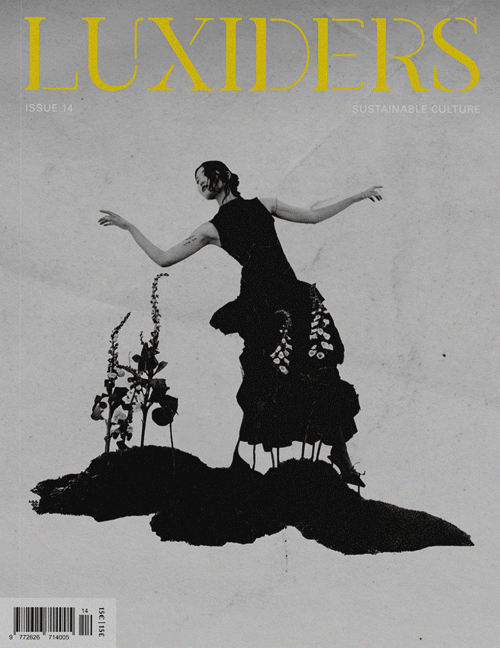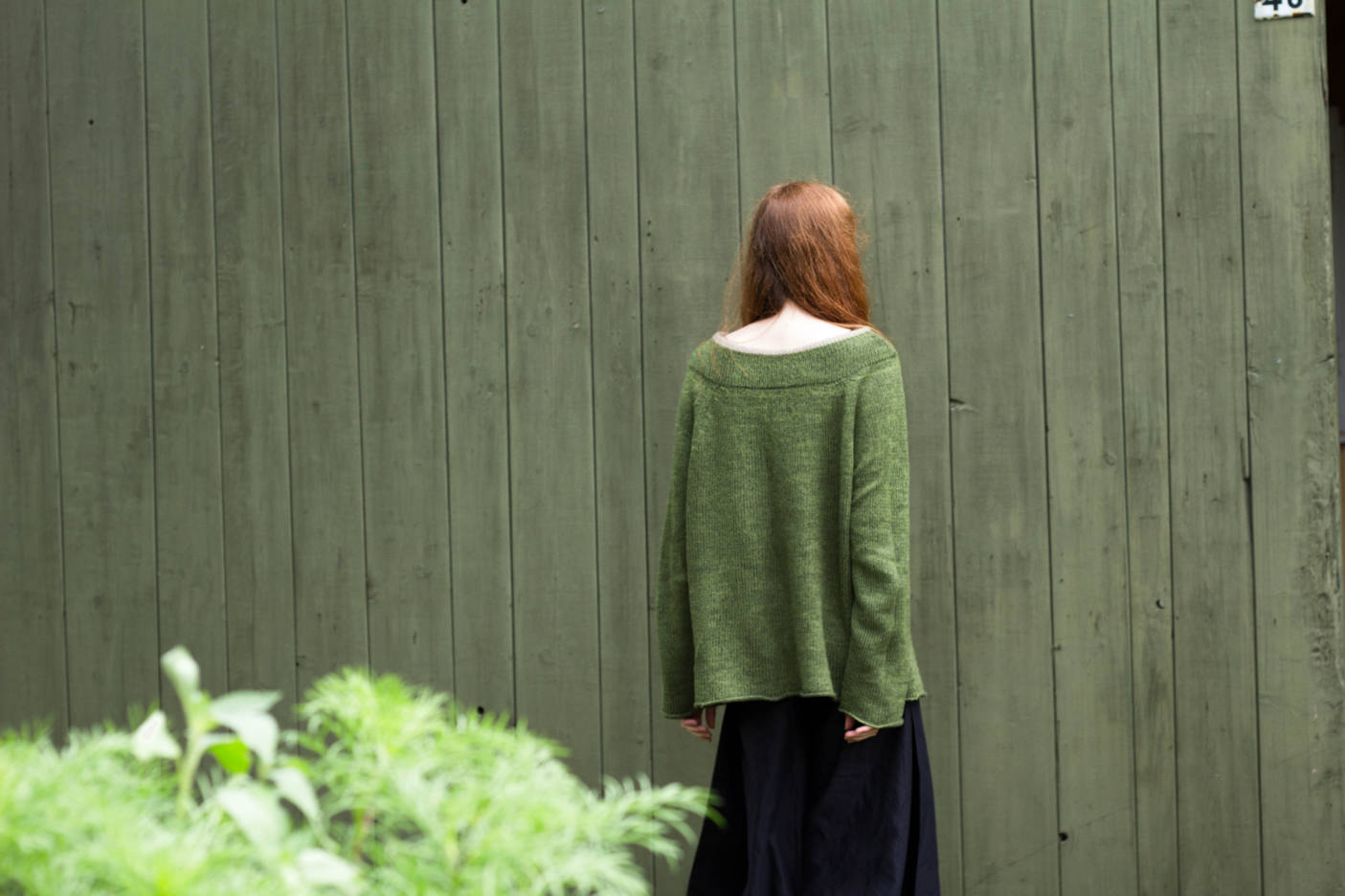
Ecodesign Award to Natascha von Hirschhausen
Natascha von Hirschhausen received last week the German Federal Ecodesign Award within the Product Category. Her fashion collection “Natascha von Hirschhausen – Design.Mode.Ethik” has, regarding to the Jury statement, “extremely well-conceived cuts and patterns. Natascha von Hirschhausen has succeeded in creating contemporary fashion with waste of just one percent”. We speak with her about the Award, her ecological collections and other interesting things of the new fashion world.
The German Federal Ecodesign Award recognises and honours pioneers in the field of ecological design. Natascha von Hirschhausen was one of the winners within the Product Category. In her fashion collection Natascha von Hirschhausen – Design.Mode.Ethik, the designer uses only IVN BEST and GOTS-certified materials, while plastic has been avoided in all components. The clothing is manufactured locally in Berlin, and production is made to order, which minimises transportation routes and prevents overproduction. Special cutting techniques have reduced overall waste to just one percent. The innovative cuts, each of which spans several sizes, are independent of the season, and repairs are guaranteed at no cost.
To Rita Schwarzelühr-Sutter, member of the Jury: “With extremely well-conceived cuts and patterns, Natascha von Hirschhausen has succeeded in creating contemporary fashion with waste of just one percent. Thereby, the size-spanning cut can be adapted to every circumstance. Local production to order rounds off the label’s terrific sustainability concept.”

Getting to know Natascha von Hirschhausen
Natascha von Hirschhausen studied fashion Design at Kunsthochschule Berlin Weißensee. During her Bachelor and Master of Arts, she already worked for Isabell de Hillerin and Anne Gorke. In 2014, she travelled to Bangladesh with the exchange program “Local-International” by Goethe Institut Bangladesh, KHB and UdK Berlin. During her Meisterschüler at KHB, she founded her label Natascha von Hirschhausen, which won the Federal Award for Ecodesign this year. The Capsule Collection with Living Blue Bangladesh and the Jewelry Line also came out this year.
We ask her about the ecological and ethical labels she use to wear. She, completely in love with Martin Margiela and Yohji Yamamoto creations, wants to be honest: “Mainly my own, because I always produce the samples with the original or leftover fabric to avoid causing waste. These pieces most often turn up to be in my wardrobe, because they are not produced as the original collection piece, but they are already very wearable”. That is a very good idea, we think.
“Being a fashion designer and not a trained manager I had to learn how to run a business very quick. That was and is quite tough, but also an interesting challenge. Since I founded directly after my studies and have no investor, my company was and is quite small, due to a small budget”.
“I am looking forward to sustainable growth, which will also give me the chance to become a good manager and CEO for the brand. This sustainable growth turns out to work out really good until now, so I am incredibly happy about the state of the business right now” – she adds.
Natascha eco and ethical lifestyle is quite minimalist. She tryes to avoid consumption wherever she does not really need it. “This way, my personal experience is, that I cherish the pieces I do have more and I can spend a little more money on them. Foodwise, I am vegetarian without eating eggs, so kind of half vegan”.
Talking about films and foods, she tells us: “About one month ago I saw River blue, which was really good and of course The true Cost is a must see. One of my all time favorites though is Notebook on cities and clothes, by Wim Wendersabout Yohjy Yamamoto. A book I really enjoyed reading was Sustainable fashion, because it really puts sustainability in context”. Yes, she is right, we have also read it and yes, this book is an extremely well researched, informativ overview of sustainable fashion history, basic knowledge and strategies, so it is absolutely recommendable.

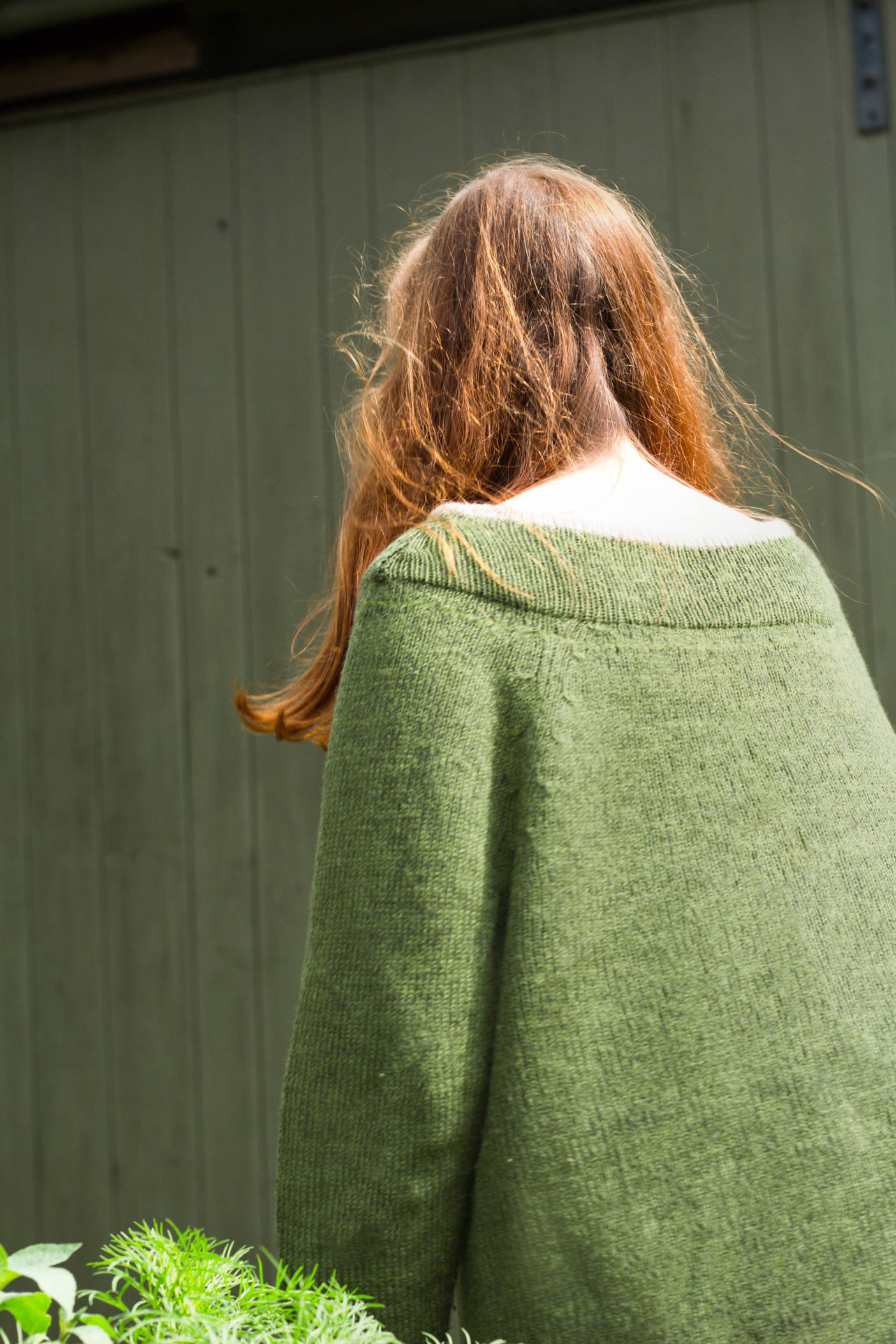
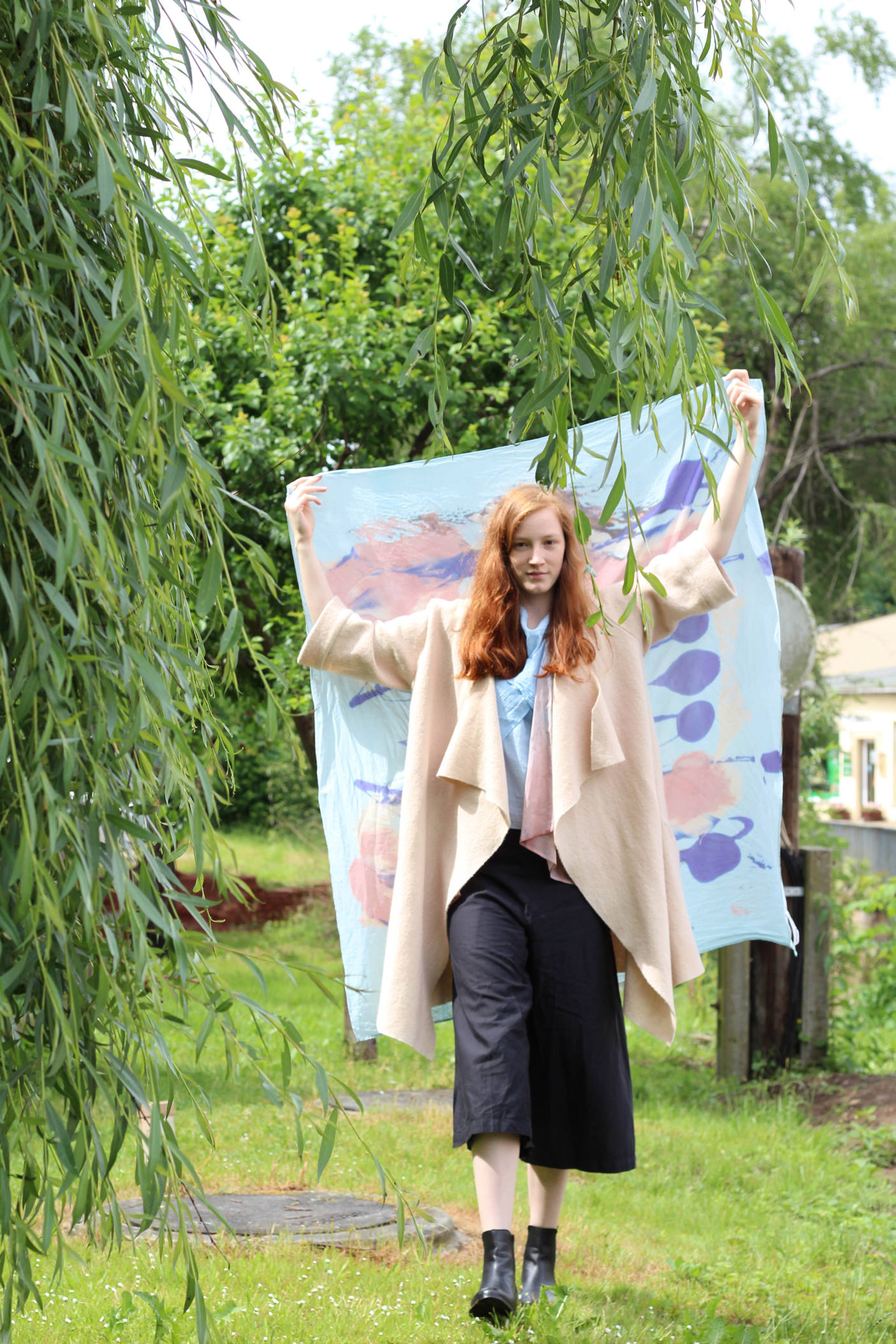
Sustainability, the only way
As Natascha tells us, she was kind of always thinking about sustainability and ethics, but she could not imagine to found her own label until she went to Bangladesh in 2014. “It was an incredible experience” – she says. When she came back, she decided, that every honest step towards a more sustainable and ethical approach on fashion is a good one.
“I think the saddest thing about fashion industry right now is lack of respect in every aspect. The current fashion industry does not respect the environment, the employees and the resources. If you look at the garments themselves you realize, that the companies do most often not even value design and quality and thereby their costumers. Today it is simply more about making money, than about the excitement, the story and the respect in the collections – that is what I really do miss” – she says.
In her personal opinion it is simply more fun to have beautiful pieces, that you really love, instead of having a lot of pieces, that do not have a value for you. “Since I strongly believe, that it is very important not to condemn anyone for their choices, I would never tell anyone what to do or what not to do. I simply suggest to try out some sustainable and ethical brands, that offer good quality and a story behind the garments and I believe, that one will find out for himself or herself, that less and good consumption makes you feel better in any way” – she declares.
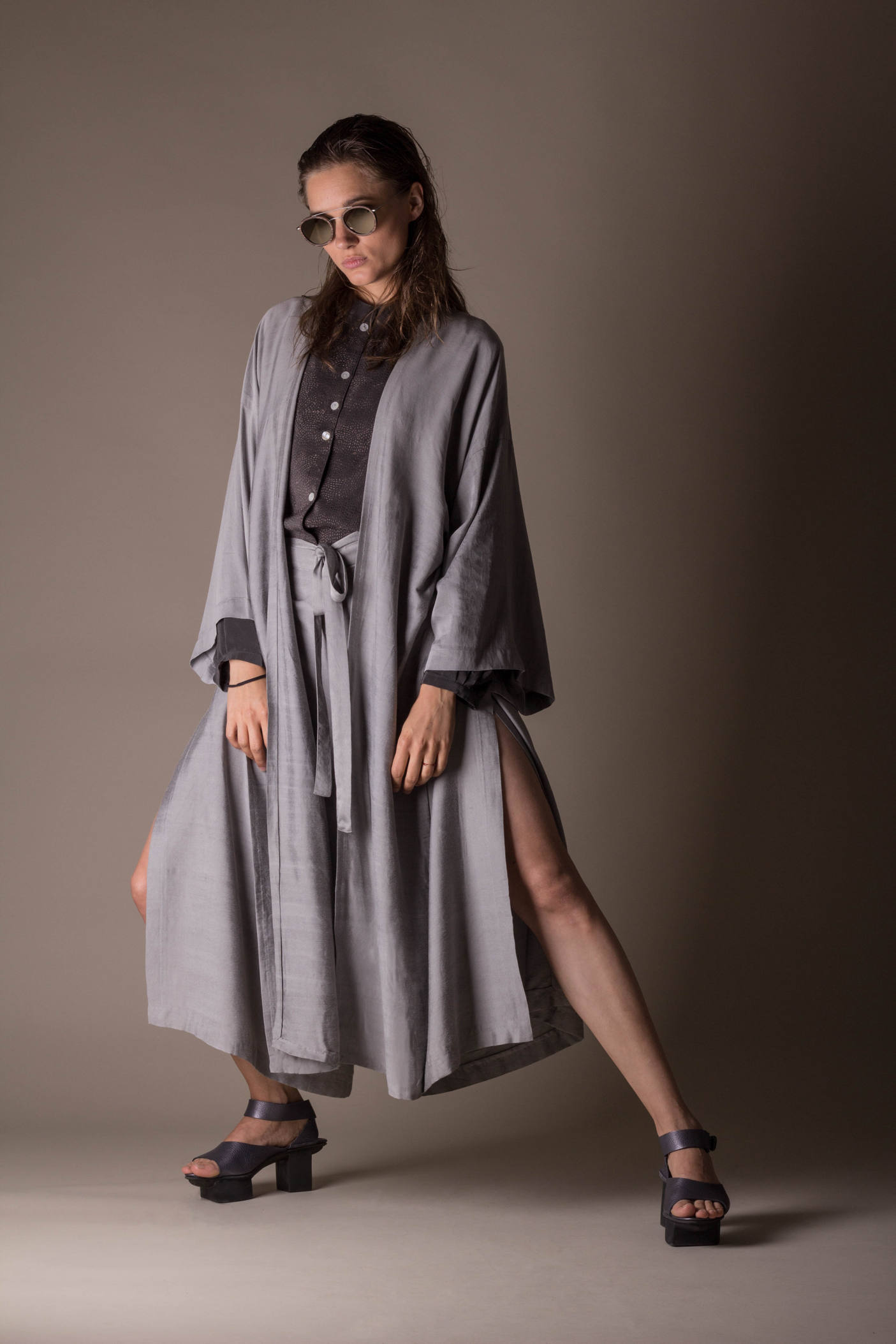

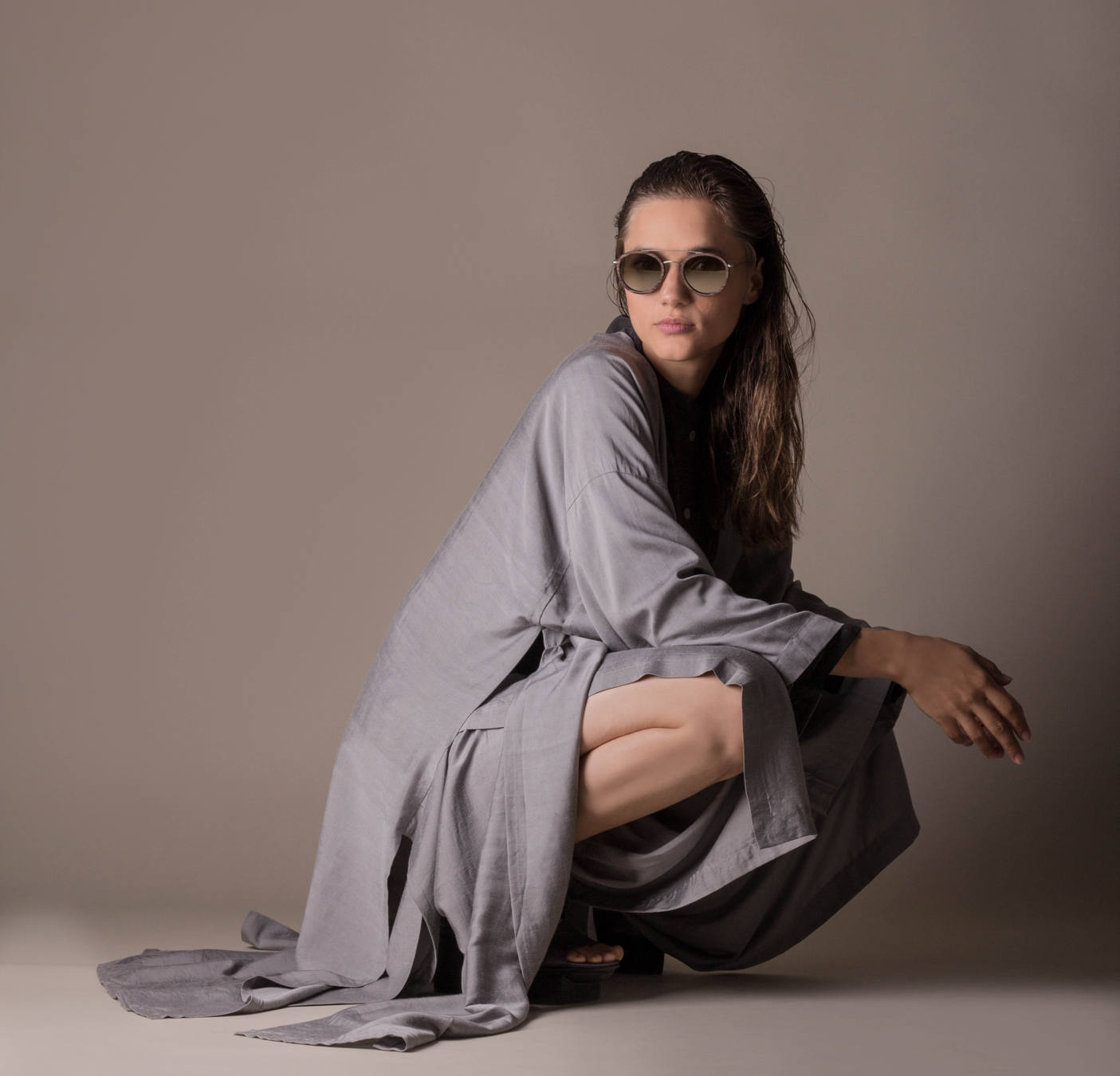
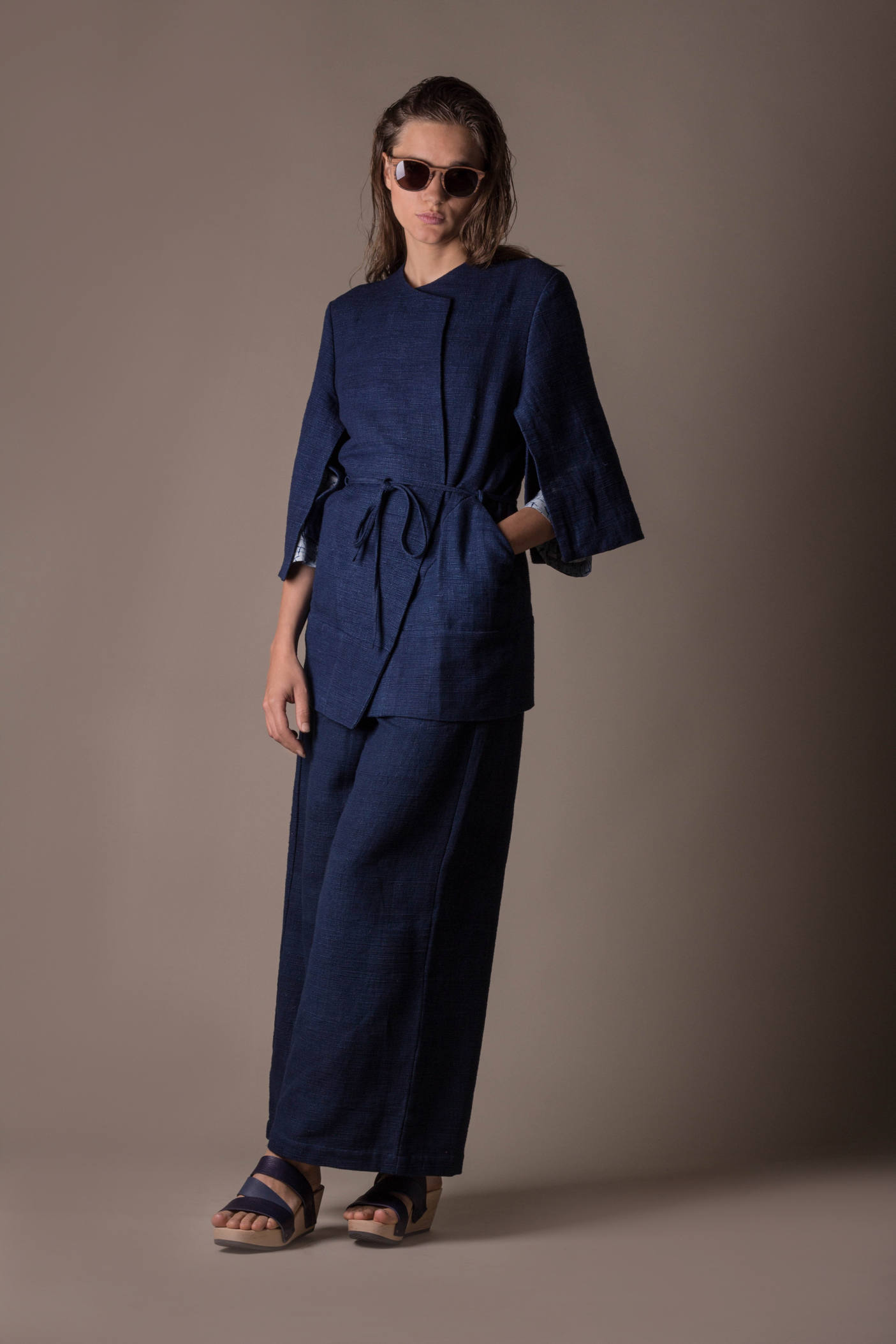
Minimal-Waste, the new must
Natascha won the Federal Award with her main collection, which is minimal-waste, fair, eco-friendly, compostable, transparent and made to order. Natascha also wants to explains us about her capsule collection „the essence“, the one she developed with Living Blue Bangladesh. “They make the most incredible, one of a kind handcraft and pure natural dyes – all fair in Bangladesh” – she underlines.
“Since I want to work as sustainable as possible my philosophy always influences my design and there are countless challenges, that sustainable designers have to face. For example, the minimal waste patterns are way more complicated to achieve, than normal patterns. The cutting of the fabric is more time consuming. The research on materials takes a lot time and the fabrics are, of course, more expensive than others”.
To all those sustainable addicts living or visiting Berlin, she ends our interview with some gastronomic and shopping recommendations: “I really like the shops Moeon and Hommage in Berlin. Wertvoll is also a very good place to go to. There are so many good vegetarian restaurants and flea markets all over Berlin, that I simply can not choose my favorite”.
+ info: Natascha Von Hirschhausen
